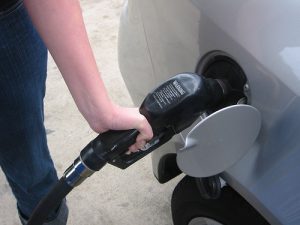 At one time, the gas you put in your car wasn’t much different from the crude oil that came out of the ground. Most people were happy with any product that made their car move. These days, people are much more concerned about the chemicals they put into their car’s tank. They want a high-octane fuel that helps keep their vehicle in top shape at all times. Drivers are also much more conscious of the environment. They want to know the gasoline their car guzzles is “green.” Refiners are always looking for new ways to give drivers peace of mind.
At one time, the gas you put in your car wasn’t much different from the crude oil that came out of the ground. Most people were happy with any product that made their car move. These days, people are much more concerned about the chemicals they put into their car’s tank. They want a high-octane fuel that helps keep their vehicle in top shape at all times. Drivers are also much more conscious of the environment. They want to know the gasoline their car guzzles is “green.” Refiners are always looking for new ways to give drivers peace of mind.
By adding certain chemicals to crude oil, refiners can make a much more eco-friendly product that reduces your car’s emissions. They add other types of chemicals to help make your car run better in harsh weather conditions. Some even increase your car’s fuel economy. If you’re curious about how to improve your vehicle’s performance, get to know the additives in your car’s fuel.
Antioxidants
Fuel begins to oxidize — or get stale — about 30 days after it leaves the pump. When fuel goes bad, it starts to get gummy and clog your car’s fuel injectors, valve stems, carburetor, and other important systems, resulting in poor performance. Antioxidants help stabilize the fuel and keep it from oxidizing. They reduce the amount of gum that builds up in your car to keep it in good running order.
Detergents
Just like the chemicals you use to wash your laundry, detergents help keep your engine clean by removing fuel system deposits. The United States Environmental Protection Agency (EPA) requires refiners to add a certain amount of detergents to their fuel. Nitrogen is a popular fuel detergent.
Oxygenates
Ethanol, methanol, and methyl tertiary butyl ether (MTBE) are common oxygenates. They increase the amount of oxygen in your car’s gasoline. They improve the octane rating and reduce the amount of carbon monoxide emissions your car produces.
Antiknock
In a car engine, air and gasoline mix together in a cylinder. When compressed, they ignite, making the engine come alive. However, too much compression causes the spark to ignite too early, or knock. Over time, knocking can cause major engine damage. Antiknock additives help increase the fuel’s octane rating and reduce knocking to extend the life of your car.
Anti-Icing
If you live in a cold climate, your gas can freeze inside your tank and fuel lines. When the temperature dips below freezing, refiners add anti-icing additives to fuel. Isopropyl alcohol is a common anti-icing agent.
Corrosion Inhibitors
Metal corrosion is a fact of life when it comes to cars. Reactions between the fuel and the metal components of your car are impossible to avoid if you don’t take special precautions. Corrosion inhibitors help slow down the reaction, reducing the amount of corrosion by as much as 95 percent.
Your car’s fuel likely contains a number of additives to help make it run better. It’s a good idea to get to know the additives in your car’s fuel and what they do.
Image “Pumping gas” by futureatlas.com, used under CC BY 2.0




